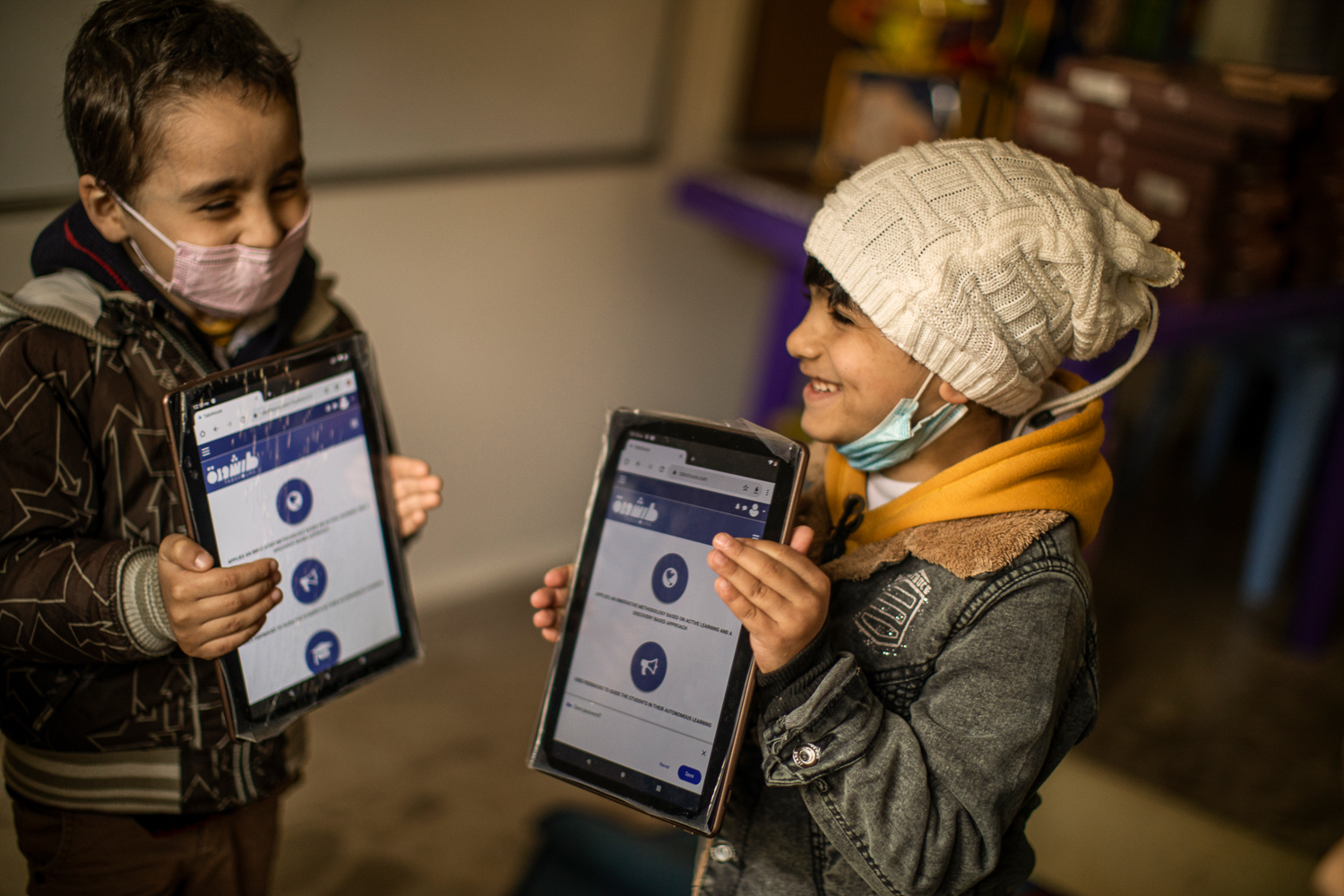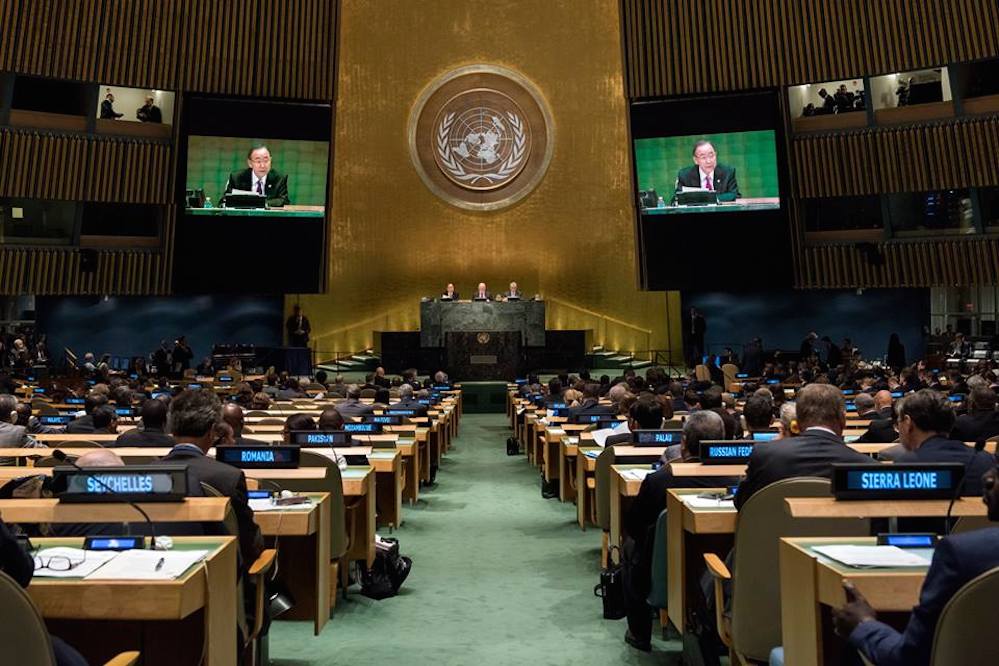
United Nations General Assembly

This page is about the United Nations General Assembly, which is where the nations of the world debate on global issues and agree policies like the Sustainable Development Goals. Here you can see how Theirworld is involved with the UN through contributions to official reports, campaigns like #UpForSchool and support for funding for education in emergencies.
Understanding the United Nations General Assembly's role in global progress
The United Nations General Assembly (UNGA) is a pivotal forum where global leaders address pressing issues, including education for all.
The UN General Assembly (UNGA) was set up in 1945 in the wake of the Second World War to be the “deliberative, policymaking and representative organ of the United Nations”.
The General Assembly opens every year in September. It is a forum where countries can debate international political issues like peace and conflict, economic development, social, humanitarian and cultural issues.
It also makes some key decisions for the UN, including appointing the Secretary-General, electing the non-permanent members of the Security Council and approving the UN budget. The UN is funded by contributions from member countries – if a nation doesn’t pay it can lose its right to vote in the General Assembly.
After the opening debates, the discussions continue in six smaller committees that focus on specific areas such as peace and disarmament, or social and humanitarian issues.
The committees examine issues then present draft resolutions and decisions for consideration to the General Assembly where member nations can vote on the recommendations.
The United Nations Sustainable Development Goals
In 2015, UNGA approved the Sustainable Development Goals (SDGs). These are 17 global commitments to end poverty, protect the planet and promote peace.
The SDGs came into force on January 1, 2016. They are not binding for countries but they are unique because they call for action by all the countries which are members of the UN – whether poor or rich – by the year 2030.
Goal 4 focuses on education. It aims to “ensure inclusive and equitable quality education and promote lifelong learning opportunities for all”. But education is key to all of the 17 SDGs – education means people have the power to make good, informed decisions in different areas of their lives.
The Education Commission report
The Education Commission – a group of world leaders working together to tackle the lack of funding for education – presented a report to the UNGA in September 2016.
The report was presented to the UN General-Secretary Ban Ki-moon. Its recommendations are crucial in identifying how much needs to be spent to achieve the education targets in the SDGs.
Why the UNGA matters for global education and development
It is important that voices for education are heard in the UN. There are lots of ways in which Theirworld and other education campaigners get information and ideas to the UNGA to influence the decisions it makes.
As well as global campaigns and petitions, Theirworld and its partners get involved in UN processes such as official reports and working with UN agencies.
Here are two examples of how Theirworld had engaged with the UN:
The UN Youth Takeover. In 2013, the first ever Youth Takeover of the UN took place, organised by the President of the UNGA, UN Special Envoy for Global Education Gordon Brown and Theirworld’s A World at School movement.
A World at School and partners brought together hundreds of young education advocates from around the world, including schoolgirl Malala Yousafzai, who made her first public speech since being shot by the Taliban in Pakistan. It was at the UNGA that Malala made her famous speech which ended with the lines: “One child, one teacher, one pen and one book can change the world. Education is the only solution. Education First.”
A World at School worked with more than 100 organisations to bring together the world’s leading young education champions for the Youth Takeover.
The #UpForSchool Petition. This was presented to the UNGA in September 2015. It had more than 10 million signatures, making it the world’s biggest ever petition on education. The signatures were collected through a global movement of non-governmental organisations (NGOs), government organisations, businesses, teachers, media and young people, supported by Theirworld and A World at School.
The petition was handed to UN Special Envoy for Global Education Gordon Brown. He then presented it to Secretary-General Ban at the UN headquarters in New York, as world leaders gathered for the UNGA.
UNGA and global education
Sustainable Development Goal 4 focuses on an ‘inclusive and quality education for all’. This means that there is a specific focus on education at the UNGA and that education is recognised as a way to improve the general economic and social standing of all people, not just children.
As well as this specific goal, there is also an understanding that education is an important part of all 17 Sustainable Development Goals as it is proven that access to education decreases a child’s chance of poverty, increases their overall income and improves their health in their later life.
Next resource
